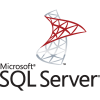What is DBMS ?
A Database Management System (DBMS) is a software model that facilitates storing, retrieving, managing, and manipulating data within a database. It serves as an intermediary between the user (a person, another software tool, or a computer system) that will use the DBMS for a query and the database, enabling users to perform various operations such as creating, modifying, and querying data efficiently and conveniently.

The primary goal of a DBMS is to provide a systematic and organised way of handling data that ensures data integrity, security, and accessibility – across both on-premise and cloud models.
Industries and applications across the spectrum, from finance to healthcare, retail, and education, use DBMSs—because a DBMS has a powerful ability to monitor and manage vast amounts of data systematically.
Today’s DBMS offer vital features such as data modelling tools for defining the structure and relationships of data, concurrency control mechanisms to allow multiple users to access data simultaneously without conflict, and data integrity and security tools to enforce rules and protect data.
A DBMS's role extends beyond data management; DBMS also play a role in ensuring data security, enabling controlled user access, and supporting data sharing and integration across different locations and platforms. DBMSs simplify the complex tasks associated with database administration by providing a centralised system for managing databases, making it easier for organisations to maintain and access their critical data.
Database defined
A database is a structured collection of data, typically stored electronically in a computer system, designed for easy access, management, updates, and analysis. Databases are essential for organising large amounts of information to make the data readily retrievable and valuable for various purposes, such as sales transactions, customer data, financial records, and product information.
Organising data in a database is necessary because it allows for efficient data management, something that businesses and organisations need to operate effectively. The benefits of managing data in a database include:
Improved accessibility:
The DBMS model stores data in a way that makes searching and retrieving accessible. This aspect is crucial for businesses needing quick access to customer information or transaction records.
Enhanced security:
Database mechanisms control data access, protecting sensitive information from unauthorised access or breaches.
Data integrity:
By managing data in a centralised model, databases help maintain the accuracy and consistency of data across different applications and use cases - ensuring queries are easy to serve.
Reduced redundancy:
Designers create databases to minimise duplication of data, which saves storage space and simplifies data management.
Consistency:
Organizing data in a database ensures that everyone in an organisation works with the same data, which can improve collaboration and reduce errors.
Scalability:
Databases can handle large volumes of data and can be scaled up as the amount of data grows, which is essential for expanding businesses.
Data sharing:
A DBMS facilitates data sharing across different departments or stakeholders, enabling a more integrated approach to operations and decision-making.
Backup and recovery:
Databases (or third parties) include tools for backing up data and recovering it in case of loss, which is critical for preserving business continuity.
In summary, a DBMS drives the systematic approach to data management that makes databases vital for organising data.
Benefits of using a DBMS
A DBMS enhances data security, improves access to data, facilitates quick decision-making, and ensures data model consistency across an organisation. By centralising data management, a DBMS allows multiple users to access and work on data simultaneously without compromising data integrity or security.
This centralised approach improves monitoring and thereby reduces data redundancy and inconsistency, common issues in environments without a DBMS. Furthermore, DBMSs support data integrity and security through access control, encryption, and user authentication, ensuring that sensitive information is protected.
Using a DBMS also improves operational efficiency by enabling quick data retrieval and facilitating data analysis in various ways, supporting informed decision-making.
Benefits for Small Businesses
For small businesses, a DBMS can be particularly beneficial regarding cost savings, enhanced security, and scalability. Small businesses often operate with limited resources, and a DBMS can help reduce costs associated with data management by streamlining data storage and providing a clearer view of data.
Enhanced security features such as access control and encryption protect sensitive customer data, which is crucial for maintaining trust. Additionally, the scalability of a DBMS allows small businesses to easily adjust their data management capabilities as they grow without significant additional investment.
Benefits for Medium-Sized Businesses
Medium-sized businesses stand to gain from DBMS applications through improved operational efficiencies and customer insights that a DBMS can provide. As these businesses handle larger volumes of data and more complex operations than small businesses, a DBMS can help manage this complexity by providing a centralised platform for data management.
DBMS enables medium-sized businesses to improve decision-making through better data queries, leading to enhanced analysis and reporting capabilities. Furthermore, a DBMS can support targeted marketing campaigns and customer relationship management by providing insights into customer behaviour and preferences.
Benefits for Enterprises
Enterprises benefit from a DBMS through enhanced data integration, security, and compliance capabilities. Given the vast amounts of data and the complex data landscapes within large organisations, a DBMS provides a centralised view of data across multiple locations, facilitating better data integration and analysis.
DBMS is crucial for enterprises that must make strategic decisions based on comprehensive data insights. Additionally, the advanced security and compliance features of a DBMS are essential for enterprises to protect sensitive data and adhere to regulatory requirements. The ability to scale and customise the DBMS according to specific enterprise needs further adds to its value.
Popular types and examples of DBMS technologies
Two broad categories of database management systems (DBMS) used to store, retrieve, and manage data are SQL (Structured Query Language) and NoSQL (Not Only SQL) databases.
Relational databases, or SQL DBMS, store data in tables with rows and columns and users use the SQL language to execute a query. Each table represents a different entity type, and foreign keys define relationships between tables.
NoSQL DBMS are non-relational databases that store data in various formats, such as document-oriented, key-value pairs, wide-column stores, or graph databases. They do not require a fixed schema and can handle unstructured and semi-structured data. Using a NoSQL database means using a language like JSON, not SQL, to query data.
Comprehensive implementation commonly uses some DBMS, but the market has many DBMS systems. Those include:

Oracle Database:
Oracle is a highly scalable and feature-rich commercial relational database management system. Oracle is known for its advanced security features, data warehousing, and comprehensive DBMS toolset. Oracle databases are widely used in enterprise environments and are available in various configurations, including cloud-based options.

PostgreSQL:
PostgreSQL is an open-source object-relational database system that stands out for its robustness, advanced features, and support for complex data types. It is highly extensible and standards-compliant, which makes it suitable for a wide range of applications, from simple web applications to complex data warehousing projects. PostgreSQL is also available on various cloud platforms as Postgresql as a Service.

MySQL:
MySQL is a prevalent open-source relational database management system in web development. It is a crucial LAMP stack component, including Linux, Apache, MySQL, and PHP/Python/Perl. MySQL and MySQL as a Service are praised for their ease of use, reliability, and robust performance. It is also available in a cloud-managed version through various cloud service providers.

MongoDB:
MongoDB is a leading NoSQL database that stores data in flexible, JSON-like documents. MongoDB as a Service is designed to handle large volumes of data and complex data structures, making it a popular choice for big data applications and content management systems. MongoDB's distributed architecture provides high availability and horizontal scaling, and it is offered as a managed service by several cloud providers.

Microsoft SQL Server:
Developed by Microsoft, SQL Server is a relational database management system that integrates seamlessly with other Microsoft products, such as Windows Server and Azure. It offers a range of tools for data analysis, business intelligence, and transaction processing. Microsoft SQL Server is available in both on-premises and cloud-hosted versions.

Valkey:
Users can use Valkey as a database, cache, or message broker, an in-memory data structure store. It is renowned for its high performance and low-latency capabilities, which make it ideal for real-time applications such as gaming leaderboards, session management, and caching. Valkey supports various data structures and is available as a managed cloud service.

IBM DB2:
IBM DB2 is a family of data management products with database servers that deliver high-performance and robust data handling. IBM offers cloud database services through its IBM Cloud platform, providing options for running DB2 in a fully managed environment.
The DBMS landscape has evolved significantly with the advent of NoSQL databases, which have emerged as a response to the limitations of traditional SQL-based systems in handling large volumes of unstructured or semi-structured data.
SQL databases, which are relational, have been the mainstay for decades, offering structured query language and predefined schemas suitable for complex queries and transactional applications. However, the rise of big data and the need for scalability and performance in web, mobile, and IoT applications have driven the popularity of NoSQL databases.
Nonetheless, choosing which DBMS model fits your organisation best would depend on your performance requirements, what type of data you’d store, and whether you prefer to pay commercial license fees or take advantage of open-source software.
Our Database Management Systems
OVHcloud offers a comprehensive range of Database Management System (DBMS) solutions through its managed database services within the Public Cloud ecosystem – offering both SQL and NoSQL applications.
Designers of our cloud database solutions ensure they are production-ready applications featuring high availability, automated backup, and security capabilities tailored to the service plan chosen. Tools like the OVHcloud API or CLI allow customers to manage their databases, ensuring accessibility from any OVHcloud product.
OVHcloud offers the popular MySQL as an open-source relational database, alongside similar alternatives PostgreSQL and the MySQL fork MariaDB. We also provide customers-hosted MongoDB, a leading NoSQL database solution, and OpenSearch, A NoSQL engine for indexing, content search, and analytics.
OVHcloud's managed database services are integrated with our Public Cloud, offering dedicated resources and stable performance. We design the benefits to be cost-efficient with per-hour billing, providing customers with predictable pricing.
Whether you need a relational or non-relational database, we emphasise open-source technologies, so OVHcloud ensures that customers avoid vendor lock-in and can benefit from community-driven innovations.
OVHCloud and DBMS

Gain a competitive edge, with our managed databases
Harness the power of your data while keeping sole control over your assets. With our managed database services, we take care of the database infrastructure and administration, including set-up, backup, scalability and security.

MongoDB, managed in a trusted cloud
Reduce your time to market and free your developers from onerous infrastructure administration tasks, so they can focus on innovation. We handle the setup, maintenance, backup, security and monitoring of your MongoDB databases.

Managed Databases for PostgreSQL
Accelerate your business by deploying a managed PostgreSQL cluster in just a few clicks. Get an open-source relational database engine that can handle heavy workloads.